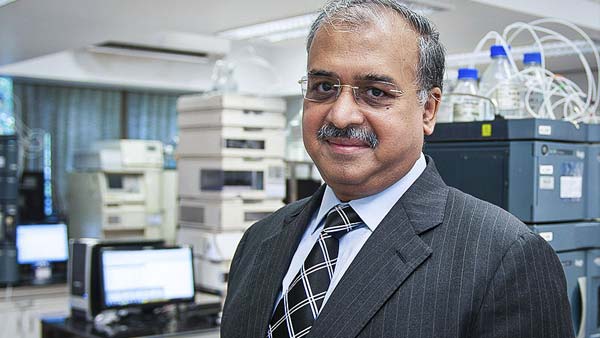
Sun Pharmaceuticals recently announced results from a Phase 1 multiple ascending-dose study evaluating the safety, tolerability, pharmacokinetics, and pharmacodynamics of GL0034 (Utreglutide) in obese adults. Obesity is a rapidly growing global health concern. So far GLP-1 (glucagon-like peptide 1) agonists, are seen as a class of drugs that may lead to weight loss and improved blood sugar.
GL0034 (Utreglutide) is an innovative compound, which is under evaluation for its potential to provide significant clinical benefits for individuals with obesity. In a press release, Sun Pharma stated that the recent GL0034 study has shown encouraging results with significant weight loss and notable improvements in lipid profiles among obese participants. “These findings not only demonstrate the activity of GL0034 in promoting weight loss but also underscore its potential in improving crucial cardiometabolic parameters and risk factors,” said Dilip Shanghvi, managing director, Sun Pharma. “We are dedicated to advancing this innovative therapy to bring meaningful benefits to patients worldwide."
With a presence in over 100 countries, their product portfolio includes generics, branded generics, speciality, difficult-to-make technology intensive products, over-the-counter (OTC), anti-retrovirals (ARVs), Active Pharmaceutical Ingredients (APIs) and intermediates. The company, which has a market cap of Rs 373,432 crore, has been investing heavily in R&D for innovator products.
During the recent Indian Pharmaceutical Alliance’s 9th edition of the Global Pharmaceutical Quality Summit 2024, Shanghvi spoke about navigating supply chain challenges, creating a culture of quality and more. Edited excerpts:
While we focus on designing our products well, and having robust manufacturing processes, we also need to recognise that we have thousands of people working in our manufacturing infrastructure. So we need to build a robust culture of empowering them, strengthening their ability to share their views and observations. Historically, we've been a top down society, and that will need a change if we have to succeed in strengthening our culture.
I see most of the Indian companies are on that journey—be it at the company level or even at individual plant level. In the process, technology is also changing, and upgrading. So all these multiple pieces need to be managed well, for us to succeed and consistently do well on the quality front.
As you face business challenges, you think through and come up with solutions, which can potentially reduce your future challenges. One such easier, but not necessarily cheaper option is that whichever product that you filed, you have more than one source, so that one disruption does not hurt you. Second, thanks to the PLI Scheme, we are likely to get many of the key starting materials from within the country.
But what I think automobile industry has done in terms of strengthening their supply chain, their capability building and their use of technology is incredible. We also need to be thinking in this direction, not only on how we can upgrade our capability, but also how we can help our vendors upgrade their capability, so they can go through future inspections more successfully, without any disruption.
A big change in the past few years is that investors are looking at companies performance on ESG. This is a very positive change, because you're driven by what helps you generate more value. For instance, the environmental impact of the production processes. One way to think about it is, how do you reduce the environmental impact by improving the efficiency? If you're using solvents in manufacturing process. How can you use technology to reduce loss of solvent either in process or in evaporation?
So I think, ultimately, this will help us improve our carbon footprint and help the society. But also the company's financials. It will also make the manufacturing processes safer and it will help us become a much more diversified business. So on all accounts, I think the what is good for society, is also good for business.
As an industry and as individuals, we've been reticent about what we are contributing to global health. I’m happy that we don't operate from a position that we know everything and everything that we do is always right. I think as an industry, we recognise that there are issues, we have worked on addressing those issues. That’s how we've reached this level.
As we go higher, we have to keep adding to what we know, and that will make us stronger. Learning new things does not expose our weaknesses, it only exposes our strength.
On the innovation front, I believe that Indian companies will make a difference in next 10 years. That will create a cascade of investment in the future
This article was originally published on Forbes India